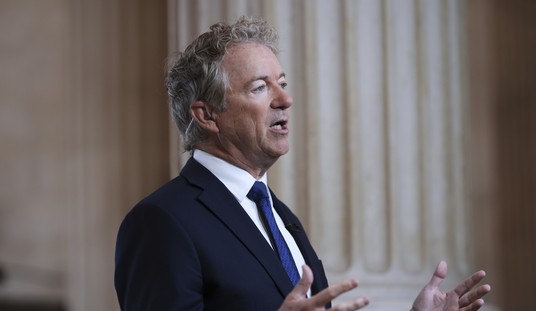WASHINGTON – The Senate has passed and sent to President Obama a bipartisan two-year budget deal that increases federal spending slightly above previously agreed to levels and reduces retirement benefits for some military veterans.
Obama was expected to quickly sign the agreement that passed in a 64-36 vote with nine Republicans joining all of the chamber’s Democrats for a compromise package that drew some of its support from lawmakers hoping to avoid the specter of another governmental shutdown. The House adopted the measure 332-94 last week.
Republicans voting for the package were Sen. Saxby Chambliss, of Georgia, Sen. Susan Collins, of Maine, Sen. Orrin Hatch, of Utah, Sen. John Hoeven, of North Dakota, Sen. Johnny Isakson, of Georgia, Sen. Ron Johnson, of Wisconsin, Sen. John McCain, of Arizona, Sen. Lisa Murkowski, of Alaska and Sen. Rob Portman, of Ohio.
Senate Democratic Leader Harry Reid, of Nevada, acknowledged that the modest proposal “isn’t a perfect bargain — no compromise is ever perfect.” But he maintained the new spending package is vastly superior to the plan it supplants – a process known as sequestration that implemented across-the-board federal spending cuts that proved particularly difficult for the military.
“The bargain rolls back the painful cuts of the sequester, including devastating cuts to education, medical research, infrastructure investments and defense jobs,” Reid said.
Obama, who supported the plan, said he was pleased with the outcome, asserting that the two-year budget plan “unwinds some of the damaging sequester cuts that have harmed students and seniors and acted as headwinds our businesses had to fight.”
“All told, it’s a good first step away from the shortsighted, crisis-driven decision-making that has only served to act as a drag on our economy,” Obama said. “It helps chart our economic course for the next two years, which means that the American people won’t be exposed to another painful and unwise government shutdown. But there is much more work to do to ensure our economy works for every working American.”
Under the plan cobbled together by Sen. Patty Murray (D-Wash.), chairwoman of the Senate Budget Committee, and Rep. Paul Ryan (R-Wis.), chairman of the House Budget Committee, spending during the current 2014 fiscal years increases from $967 billion to $1.012 trillion, with an additional increase to $1.014 trillion in 2015 without a direct tax increase. The spending increases, which particularly benefit defense programs, are offset by increasing the amount federal workers contribute to their retirement plans, adding a fee to airline tickets to help pay for security and the military retirement provision, which reduces cost-of-living increases for working-age military retirees, including those who retire early because of disability.
Starting Dec. 1, 2015, veterans under the age of 62 will see their cost-of-living adjustment changed from the rate of inflation to inflation minus one percent. Upon reaching 62, the one percent cut would be restored. The change will save $6 billion.
Sen. Kelly Ayotte (R-N.H.) and Sen. Lindsey Graham (R-S.C.), among others, objected to the retirement provision, insisting it will harm military families, particularly those forced to retire early because of injuries contracted as a result of service. Sen. Carl Levin (D-Mich.), chairman of the Senate Armed Services Committee, expressed concern about the change and said his panel will consider addressing the issue when lawmakers reconvene after the new year.
Ayotte characterized the provision “a deal breaker.”
“We could quickly find $6 billion that would not be taken from the backs of our men and women in uniform,” she said.
But McCain, who famously was held captive by North Vietnam forces after his jet was shot down in the late 1960s, asserted that the proposal was insignificant and that the Department of Defense had to find a way to get growing military retirement costs under control.
Some lawmakers, including Senate Republican Leader Mitch McConnell, of Kentucky, opposed the plan because it hiked spending levels above those called for under sequestration. McConnell said the Budget Control Act, which established the process, “was designed to cut spending in the short and long term, and I remain convinced that Congress should continue to adhere to the fiscal restraints it set.”
But supporters maintained the deal was necessary to avoid a shutdown of the federal government like that one that occurred in October when factions were unable to agree to a budget entering the 2014 fiscal year. That 16-day closure ultimately led to a stopgap spending plan due to expire on Jan. 15. It also created the conference committee, led by Murray and Ryan, charged with coming up with an acceptable compromise.
Murray said the deal doesn’t satisfy most of her ambitions but failing to arrive at an agreement with Ryan would have resulted in “another continuing resolution that would have locked in the automatic cuts or worse, a potential government shutdown in just a few short weeks.”
“The American people are sick and tired of the constant crises we’ve seen here in D.C. over the past few years,” Murray said. “They want us to work together, solve some problems, and focus on jobs, families, and broad-based economic growth. That’s why I am so glad that we are headed to a final vote on the budget agreement Chairman Ryan and I reached, that breaks through the partisanship and gridlock, and shows that Congress can function when Democrats and Republicans work together to make some compromises for the good of the country.”
Sen. Jeff Sessions (R-Ala.), ranking member on the Senate Budget Committee, complained that Reid rushed the bill through without allowing any amendments that could have addressed some of the measure’s shortcomings, assuring that “we are left with a tax-and-spend plan.”
Sen. Ted Cruz (R-Texas), reported to be considering a presidential run in 2016, said the budget bill “exemplifies what is wrong with Washington.”
“Nothing is getting fixed,” he said. “No important reforms are being addressed. The people get little in return except more debt, more taxes, and no change to the Obamacare disaster. The Senate majority voted to allow Sen. Reid to ignore all Republican amendments. Over and over, this is the roughshod style of leadership that characterizes this Senate and underscores why Washington badly needs to listen to the people.”
Sen. Lamar Alexander (R-Tenn.) voted for cloture but opposed final passage of the bill because “it avoids the federal government’s most urgent need — reducing the growth of runaway entitlement spending.”
“Instead, it spends savings that should be used to strengthen Medicare, pensions, and the air transportation system,” Alexander said. “It is particularly troubling that the budget agreement takes money from pensions in a way that treats military retirees worse than the civilian federal employees.”
Sen. Jeff Flake (R-Ariz.), who also broke ranks with most GOP lawmakers on Tuesday to allow a final vote on the budget measure, wound up voting against it on Wednesday.
“While I admire the effort to craft a compromise and believe the Senate needed an opportunity to debate this bill, I simply couldn’t support a budget agreement that trades spending increases today for potential spending cuts years down the road,” Flake said. “We’ve seen that movie before and we know how it ends.”









Join the conversation as a VIP Member